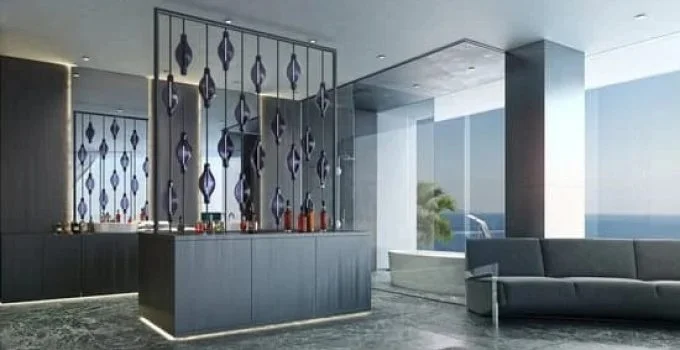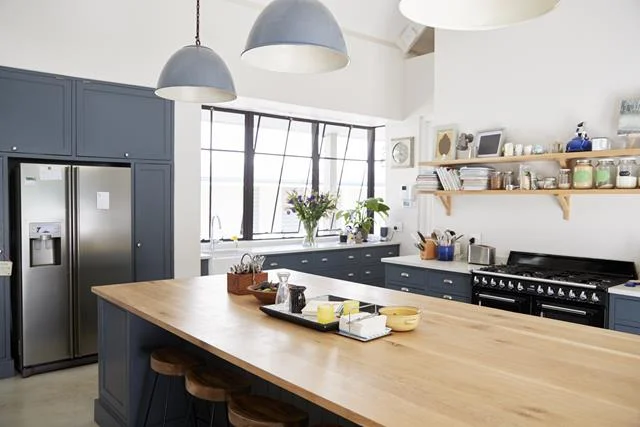Are you looking to transform your living space into a beautiful and aesthetically pleasing environment? Hiring a home decorator could be the solution you need. In this article, we will explore the value that a home decorator can bring to your space and discuss how they can enhance the overall appeal of your home.
Additionally, we will delve into factors that influence the cost of hiring a home decorator, comparing different pricing models, and providing insights into potential costs involved. By the end of this article, you will gain a better understanding of what it takes to hire a home decorator and the value that comes with it.
The role of a home decorator is more than just picking out furniture and colors; it is about creating cohesive and functional spaces that reflect your personality and style. With their expertise in design principles, color palettes, and layout optimization, home decorators can breathe new life into any room. They have an eye for detail and are skilled at transforming spaces by selecting the right furniture, accessories, lighting, and artwork to create harmony and balance.
When it comes to determining the cost of hiring a home decorator, there are several factors at play. The size and complexity of the project, along with the level of expertise of the decorator, can influence the overall cost. Whether you opt for an hourly rate or a flat fee pricing model is another consideration that affects your budget. Understanding these different factors will help you make an informed decision when approaching potential decorators for your project.
Factors Influencing the Cost of Hiring a Home Decorator
When considering hiring a home decorator, it is essential to understand the factors that can influence the cost of their services. These factors can vary depending on the scope of the project and the decorator’s level of expertise. By being aware of these considerations, homeowners can make informed decisions about their budget and expectations.
Scope of the Project
The scope of the project plays a significant role in determining the cost of hiring a home decorator. Smaller projects, such as redecorating a single room or adding finishing touches to an already furnished space, will generally have a lower cost compared to larger projects that involve multiple rooms or an entire house makeover. The complexity of the project and the amount of work involved will also impact the overall cost.
Decorator’s Level of Expertise
Another factor that influences the cost is the decorator’s level of expertise and experience. Homeowners can choose between decorators with varying levels of experience, ranging from beginners to highly experienced professionals.
Naturally, decorators with more experience typically charge higher fees for their services due to their extensive knowledge and ability to deliver high-quality results. While there may be some cost savings when hiring less experienced decorators, it is essential to consider if their skills align with your specific needs and design vision.
Additional Services and Customization
Homeowners should also consider any additional services or customization they require when estimating costs. Some decorators offer additional services such as space planning, sourcing materials and furniture, coordinating with subcontractors, or providing design consultations for future projects beyond decorating. These extra services may add to the overall cost but can also provide added value by streamlining the process and ensuring a cohesive end result.
Hourly Rates vs. Flat Fees
One of the important decisions homeowners need to make when hiring a home decorator is choosing between hourly rates and flat fees as the pricing model. Each pricing model has its pros and cons, and it is crucial for homeowners to understand which option suits their specific needs and budget.
Hourly rates are a common pricing approach used by many home decorators. With this model, the decorator charges an hourly rate for the time spent on the project. The advantage of hourly rates is that they can be more flexible, especially for smaller projects or those with uncertain timelines.
Homeowners have a better control over the expenses, as they only pay for the actual hours worked by the decorator. However, it is essential for both parties to have open communication regarding expected hours, to ensure transparency and avoid any surprises in billing.
On the other hand, flat fees may be a preferred option for larger projects or those with more defined scope and timeline. With this pricing model, the decorator provides a fixed price for the entire project, regardless of how many hours it takes to complete.
This gives homeowners a sense of certainty about the overall cost from the beginning. However, flat fees often require a thorough understanding of the project’s scope by both parties beforehand to avoid changes that could result in additional charges.
To help determine which pricing model is right for them, homeowners should consider factors such as project size, complexity, budget constraints, and personal preferences. It can also be beneficial to discuss these factors with potential decorators during initial consultations to get insights into their approach and recommendations.
| Hourly Rates | Flat Fees |
|---|---|
| The decorator charges an hourly rate for the time spent on the project. | The decorator provides a fixed price for the entire project. |
| More flexible, especially for smaller projects or those with uncertain timelines. | Preferred option for larger projects or those with more defined scope and timeline. |
| Homeowners have better control over expenses, as they pay for the actual hours worked. | Gives homeowners a sense of certainty about the overall cost from the beginning. |
Average Cost Range for Hiring a Home Decorator
When it comes to hiring a home decorator, the cost can vary depending on several factors. The size and complexity of the project, as well as the decorator’s level of expertise, will all contribute to the overall cost. It’s important for homeowners to have a clear understanding of the average cost range for hiring a home decorator in order to budget accordingly.
The average cost range for hiring a home decorator can vary significantly. For smaller projects, such as redecorating a single room or adding finishing touches to an existing space, homeowners can expect to pay anywhere from $500 to $5,000. These projects typically involve minimal changes and require less time and effort from the decorator.
On the other hand, larger and more complex projects, such as completely remodeling an entire home or starting from scratch with a new construction project, can have a much higher price tag. In these cases, homeowners should be prepared to spend anywhere from $10,000 to $50,000 or more. These larger projects require extensive planning and coordination with other professionals such as architects and contractors.
It’s important to note that these cost ranges are just estimations and can vary depending on location and individual circumstances. Homeowners should always obtain multiple quotes from different decorators in order to get an accurate idea of what their specific project will cost. Additionally, it’s recommended to have a written contract that outlines all costs and expectations before starting any work.
Overall, hiring a home decorator can be a worthwhile investment for homeowners looking to transform their living spaces into something beautiful and functional. While the cost may seem high initially, the value added by creating a space that reflects your personal style and meets your needs is immeasurable. By understanding the average cost range for hiring a home decorator, homeowners can better plan their budget and ensure they are getting fair pricing for their project.
Additional Costs to Consider When Hiring a Home Decorator
When hiring a home decorator, it is important for homeowners to consider additional costs that may arise throughout the process. These expenses are not always included in the decorator’s fee and can vary depending on the scope of the project and the homeowner’s preferences. By understanding these potential costs upfront, homeowners can better budget for their decorating project.
One potential additional cost to consider when working with a home decorator is sourcing materials. While a decorator may provide expertise in selecting materials such as fabrics, wallpapers, or paint colors, the actual cost of purchasing these items will typically be incurred by the homeowner. It’s important to discuss upfront whether the homeowner will be responsible for purchasing these materials or if the decorator offers sourcing services at an additional fee.
In addition to material costs, homeowners should also consider any new furniture or decor items they may want to purchase. A home decorator can help guide these decisions and ensure that new items fit seamlessly into the overall design concept.
However, it’s important to factor in the cost of these purchases when budgeting for your decorating project. Homeowners may choose to set a separate budget for furniture and decor, or work with their decorator to find options within their specified price range.
Another potential additional cost when hiring a home decorator is subcontractors for specialized tasks. Depending on the complexity of your project, there may be certain tasks that require expertise beyond what the decorator can provide. This could include hiring electricians, painters, carpenters, or other professionals to complete specific aspects of the project. Homeowners should discuss with their decorator whether subcontractors will be needed and who will bear responsibility for finding and managing them.
By considering these additional costs when hiring a home decorator, homeowners can ensure they have a more accurate understanding of their overall budget and avoid unexpected financial surprises along the way. Open communication with both your decorator and any potential subcontractors involved can help clarify responsibilities and establish clear expectations regarding cost-sharing. Ultimately, being aware of these potential expenses will help homeowners have a successful and financially manageable home decorating experience.
Ways to Save Money When Hiring a Home Decorator
When it comes to hiring a home decorator, many homeowners may be concerned about the cost. However, there are ways to save money without compromising on the quality of your home decorating project. Here are some practical tips and strategies to help you stay within budget:
- DIY Involvement: One of the most effective ways to save money is by getting involved in the decorating process yourself. You can take on tasks such as painting, wallpapering, or even assembling furniture. This not only reduces labor costs but also allows you to personalize your space and add your own touch.
- Repurpose Existing Items: Instead of buying new furniture or decor items, consider repurposing what you already have. With a little creativity and DIY skills, you can transform old pieces into stylish and unique elements for your home. For example, an old dresser can be repainted and used as a TV stand or storage unit.
- Take Advantage of Discounts or Sales: Keep an eye out for discounts, promotions, and sales at home decor stores. Many retailers offer seasonal discounts or clearance sales where you can find great deals on furniture, accessories, and other decorative items. Utilizing these sales can help you save significant amounts of money.
| Tip | Description |
|---|---|
| DIY Involvement | Get involved in the decorating process yourself to reduce labor costs. |
| Repurpose Existing Items | Transform old pieces of furniture or decor into new and stylish elements. |
| Take Advantage of Discounts or Sales | Keep an eye out for discounts and promotions at home decor stores. |
By implementing these cost-saving strategies, you can achieve the desired look for your home without breaking the bank. Remember, hiring a home decorator doesn’t have to be an expensive endeavor if you plan ahead and explore budget-friendly options.
Checking Credentials
When it comes to hiring a home decorator, it’s essential to ensure that you are working with a qualified and trustworthy professional. Checking credentials is an important step in the hiring process as it helps homeowners make informed decisions and avoid potential disappointments or issues down the line. Here are some key tips for checking credentials and finding the right home decorator for your project.
Thoroughly Vet Potential Home Decorators
Before making any hiring decisions, take the time to thoroughly vet potential home decorators. Start by researching their background and qualifications. Look for decorators who have formal education or training in interior design or related fields. This demonstrates their commitment to their craft and provides assurance of their expertise.
Additionally, check if the decorator belongs to any professional associations or organizations such as the American Society of Interior Designers (ASID). Being a member of such associations indicates that the decorator adheres to industry standards and ethical guidelines.
Review Portfolios
One of the best ways to assess a home decorator’s skills and style is by reviewing their portfolio. Ask for samples of their previous work or visit their website to see if they have an online portfolio. Take note of their design aesthetic, attention to detail, and ability to create diverse styles based on clients’ preferences.
While reviewing portfolios, pay attention not only to visual appeal but also functionality and practicality. A great home decorator can strike a balance between form and function, ensuring that your space not only looks beautiful but also meets your lifestyle needs.
Seek References
Don’t hesitate to ask potential home decorators for references from previous clients. Reach out to these references and ask about their overall experience working with the decorator. Inquire about aspects such as professionalism, communication skills, adherence to timelines, staying within budget, and final results achieved.
Consider asking specific questions that relate to your project requirements so you can gauge how well the decorator will align with your needs. References can provide valuable insights and help you determine if the decorator is the right fit for your project.
By following these tips and guidelines for checking credentials, you can feel confident in hiring a qualified and trustworthy home decorator who will bring your vision to life. Taking the time to vet potential decorators ensures that you are making a well-informed decision and creating a successful partnership for your home decorating project.
Case Studies
When it comes to hiring a home decorator, understanding the potential costs involved can help homeowners make informed decisions. One effective way to gauge these costs is by exploring case studies of real-life home decorating projects. These case studies provide valuable insights into the cost breakdowns, challenges faced, and final results achieved for different types of projects. Here are some examples:
1. Living Room Makeover:
- Total Cost: $5,000
- Scope: The homeowner wanted to transform their outdated living room into a modern and cozy space.
– Cost Breakdown:
- Consultation and design planning: $500
- Painting walls and ceiling: $800
- New furniture and accessories: $2,500
– Custom window treatments: $1,200 2. Kitchen Renovation:
- Total Cost: $15,000
- Scope: The homeowner desired a complete kitchen overhaul to create a more functional and stylish space.
– Cost Breakdown:
- Consultation and design planning: $1,000
- Removing old cabinets and countertops: $3,000
- Installing new cabinets, countertops, and backsplash: $8,000
- Upgrading lighting fixtures: $1,500
– New flooring installation: $1,500 3. Bedroom Refresh:
- Total Cost: $3,500
- Scope: The homeowner sought a budget-friendly update to their master bedroom to improve comfort and aesthetics.
– Cost Breakdown:
- Consultation and design planning: $300
- Repainting the walls and ceiling: $400
- New bedding set and curtains: $600
- Accent furniture and decor items: $2,200 By studying these case studies along with their respective cost breakdowns, homeowners can gain a better understanding of the potential expenses associated with hiring a home decorator. It’s important to note that these figures are just examples and costs can vary depending on the size and complexity of the project, as well as the location and specific requirements.
Conclusion
In conclusion, hiring a home decorator is a valuable investment that allows homeowners to transform their living spaces into beautiful and functional havens. Throughout this article, we have explored various factors that influence the cost of hiring a home decorator, including the scope of the project and the decorator’s level of expertise. We have also discussed different pricing models, average cost ranges, and additional expenses to consider when working with a home decorator.
One of the key takeaways from this article is that while there may be costs associated with hiring a home decorator, the value they bring to your space far outweighs the financial investment. A professionally decorated home not only enhances its aesthetic appeal but also improves its functionality. By carefully curating furniture, décor items, and color schemes, a home decorator can create a cohesive and harmonious atmosphere that reflects your personal style.
It is important to mention that saving money on your decorating project doesn’t mean compromising on quality. DIY involvement, repurposing existing items, and taking advantage of discounts or sales are just some of the ways you can cut costs without sacrificing an expert’s touch.
However, it is equally crucial to thoroughly vet potential home decorators before making a hiring decision. Checking their credentials, reviewing portfolios, and seeking references will ensure you hire someone who understands your vision and has the skills to bring it to life.
Frequently Asked Questions
Is it worth getting interior decorator?
Whether or not it is worth hiring an interior decorator depends on various factors, including your own personal preferences, budget, and time availability. An interior decorator can bring a fresh perspective and professional expertise to help you create a cohesive and aesthetically pleasing space. They can assist in selecting colors, furniture, fabrics, and accessories that suit your style and functional needs.
Additionally, they have access to resources and contacts within the industry that may not be readily available to you. However, if you enjoy the process of decorating and have a good eye for design yourself, you may find satisfaction in doing it on your own.
What is the difference between an interior designer and a decorator?
The main difference between an interior designer and an interior decorator lies in their level of education, qualifications, and the scope of work they undertake. Interior designers typically hold degrees or certifications in interior design and have technical knowledge in areas such as building codes, space planning, architecture, and structural integrity. They are qualified to oversee major renovations or remodels that involve structural changes or require permits.
On the other hand, interior decorators focus primarily on aesthetics and decoration. They assist with color schemes, furniture arrangement, material selection, lighting fixtures but do not typically get involved in architectural aspects or major construction projects.
How much does it cost to decorate your house?
The cost of decorating a house can vary greatly depending on several factors such as the size of the space being decorated, the extent of the changes desired, the quality of materials chosen, the location of the project (which affects labor costs), and whether or not you hire professionals for assistance. Generally speaking, decorating costs can range from a few hundred dollars to tens of thousands of dollars.
It is important to establish a budget before embarking on any decoration project so that expenses can be managed effectively. Consideration should also be given to potential additional costs such as fees for contractors or designers if their services are required during the process.

Hello, lovely readers! I’m Sheila Collins, and I’m delighted to be your trusted guide on this exciting journey of home improvement, design, and lifestyle. As the founder and editor-in-chief of Home Guide Blog, I’m passionate about all things related to homes, and I’m here to share my knowledge, experiences, and insights with you.





